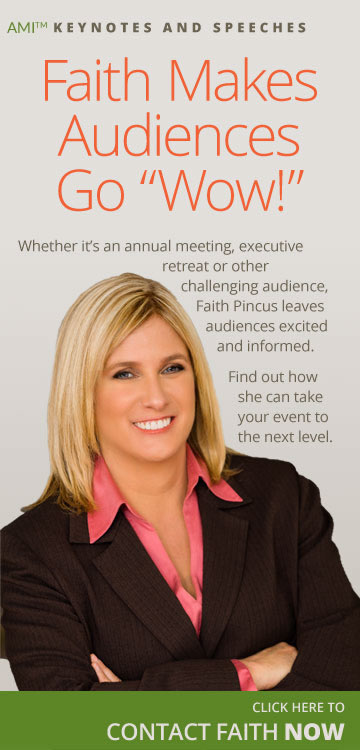Building your message from the ground up
I have been going over a lot of material that I hope has been helpful in laying the groundwork for your speech and understanding how you can connect more by knowing your audience and their needs. Now that we’ve laid that groundwork, it’s time to start with the real foundations – How to build a compelling message that you can have confidence in. Crafting your message is about content and organization. Over the years, I’ve developed a simple five step process you can use to create your presentation in an organized manner. It may even remind you of college, but unlike some of the academic information we got in college, this isn’t overcomplicated or abstract. This is simple system that works. Its simplicity is its beauty – it is a never fail system.
Today, we’ll talk about the first step: The thesis statement of your speech.
Know your goal before you speak
Your first step is to decide the purpose is in presenting, preferably in relation to your audience’s needs. Before you can know what you’re going to say, you need to be clear why you’re giving your speech and what you want to accomplish. Maybe it sounds like a step you can skip, but trust me: You will be well served to take a second and establish a meaningful thesis for your speech. When you do, you set your goal.
To be clear: I’m not talking about your motivation for speaking, like business development or because a partner or client requires it, or because it’s your job. I’m talking about your presentation’s purpose, for example:
- Are you there to educate your audience (for instance, about a topic, project, theory, case or practice?)
- Are you trying to convince a potential client to hire your firm?
- Are you trying to accept an award graciously and with meaning?
- Are you there to teach your associates about business development or give them a case update?
- Are you there to persuade a jury to rule in favor of your client, or a judge to grant your motion?
- Are you giving evidence or testimony before elected officials to convince them of the need for some legislative action?
- Is it a wedding toast? Or a business- or political-related roast of an individual?
Once you’ve determined the setting, ask yourself: What exactly do you want to accomplish with your presentation, based upon your audience’s needs and the occasion for the presentation? Take a minute to think about it first and it will save you grief and work later.
Once you’ve settled on your purpose, write it down. This is your speech thesis. Everything that happens afterwards is the result of planting this tiny seed.
Here’s a tip from a colleague of mine, Sandy Linville — a former college Speech and Debate coach in California, and a brilliant one at that. When Sandy would teach this particular topic for my company, she would tell people to say their thesis out loud after they had written it down. And she’d say, “If you can’t say your speech thesis out loud without needing a breath in the middle of it, it’s too long. Go back to the drawing board and try again.” I cannot offer you better advice than Sandy’s on this topic. Try it for yourself.
Your thesis should be a short, direct, descriptive sentence. It’s not something you’re going to say to your audience necessarily; it’s something you are going to use to guide the creation of your presentation.


